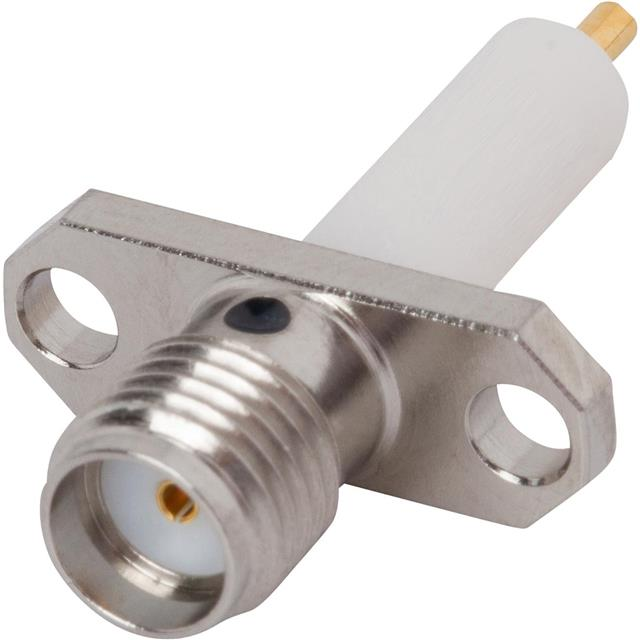Exploring Coaxial Connectors (RF): Essential Insights into Design, Applications
Coaxial connectors are integral components in modern electronics, enabling high-frequency signal transmission across a multitude of applications. From telecommunications to consumer electronics, these connectors play a crucial role in ensuring reliable and efficient communication. In this article, we will delve into the essentials of coaxial connectors, exploring their various types, applications, and technological advancements. We will also highlight unikeyic Electronics, a leading distributor known for its comprehensive range of high-quality coaxial connectors. Lastly, we'll address some frequently asked questions (FAQ) to provide additional insights.
What Are Coaxial Connectors?
Coaxial connectors are specialized components designed to facilitate the transfer of high-frequency electrical signals between devices. They consist of a central conductor surrounded by an insulating layer and an outer conductive shield. This design helps to minimize signal loss and interference, making coaxial connectors ideal for applications requiring high-frequency performance.
Key Components of Coaxial Connectors:
Central Conductor: Carries the signal.Insulating Dielectric: Separates the central conductor from the outer shield, maintaining signal integrity.Outer Shield: Provides protection against external interference and signal leakage.
Connector Shell: Ensures proper connection and mechanical stability.
Types of Coaxial Connectors
Coaxial connectors come in various types, each suited for different applications. Understanding these types is crucial for selecting the right connector for your needs.1. BNC (Bayonet Neill-Concelman) ConnectorsDescription: BNC connectors are known for their ease of use and reliability. They feature a bayonet-style locking mechanism that provides a secure connection.Applications: Commonly used in video and RF signal applications, including CCTV systems and test equipment.
2. SMA (SubMiniature version A) ConnectorsDescription: SMA connectors are compact and offer high-frequency performance. They are threaded for a secure connection.Applications: Ideal for wireless communication, GPS systems, and microwave applications.
3. N-Type ConnectorsDescription: N-type connectors are known for their durability and ability to handle high-power signals. They feature a threaded coupling mechanism.Applications: Suitable for high-power and high-frequency applications, including telecommunications and broadcast systems.
4. TNC (Threaded Neill-Concelman) ConnectorsDescription: TNC connectors are similar to BNC connectors but feature a threaded coupling for improved durability and resistance to vibration.Applications: Used in applications requiring secure connections and resistance to environmental factors.
5. F-Type ConnectorsDescription: F-type connectors are commonly used for cable television applications. They feature a screw-on design.
Applications: Ideal for connecting coaxial cables to TV sets and cable modems.
Applications Across Industries
Coaxial connectors are essential in various industries, each benefiting from their high-frequency performance and reliability.1. TelecommunicationsIn telecommunications, coaxial connectors facilitate signal transmission in cellular networks, broadband systems, and fiber-optic networks. They ensure clear and reliable communication between network components.
2. BroadcastingCoaxial connectors are widely used in television and radio broadcasting systems. They connect broadcast equipment and ensure the transmission of high-quality signals to viewers and listeners.
3. Medical EquipmentIn the medical field, coaxial connectors are integral to diagnostic equipment and imaging systems. They support accurate signal transmission, which is crucial for precise diagnostics and patient monitoring.
4. Consumer Electronics
Coaxial connectors are commonly found in cable modems, set-top boxes, and home entertainment systems. They facilitate the connection of various electronic devices, enhancing user experience with high-quality signal transfer.
Design Considerations
Selecting the right coaxial connector involves several design considerations to ensure optimal performance.1. Frequency RangeChoose a connector that supports the frequency range required for your application. High-frequency connectors are essential for applications like RF and microwave systems.
2. Impedance MatchingEnsure the connector matches the impedance of your system (e.g., 50 ohms or 75 ohms). Proper impedance matching minimizes signal loss and reflection.
3. Connector MaterialDifferent materials, such as brass and stainless steel, affect the durability and conductivity of the connector. Select materials based on the environmental conditions and performance requirements.
4. Environmental Factors
Consider factors such as weather resistance, temperature tolerance, and vibration resistance when choosing connectors for specific applications.
Technological Advancements
Recent advancements in coaxial connector technology have led to improved performance and new capabilities.1. Enhanced MaterialsNew materials and coatings are being used to improve durability and signal performance. These advancements help connectors withstand harsh environmental conditions and provide reliable performance.
2. Higher Frequency CapabilitiesCoaxial connectors are evolving to support higher frequencies, accommodating the increasing demands of modern communication systems and high-speed data applications.
3. Miniaturization
As electronic devices become more compact, coaxial connectors are being designed to be smaller while maintaining high performance. This miniaturization supports the integration of connectors into space-constrained applications.
Recommended Distributor: Unikeyic Electronics
For sourcing high-quality coaxial connectors, Unikeyic Electronics stands out as a trusted distributor. They offer:A Wide Range of Products: Featuring various types of coaxial connectors to meet diverse application needs.Quality Assurance: Providing components that undergo rigorous testing to ensure reliability and performance.Competitive Pricing: Offering competitive pricing to provide value for your investment.Expert Support: Assisting customers in selecting the right connectors for their specific requirements.
Partnering with Unikeyic Electronics ensures access to top-notch coaxial connectors and exceptional customer support, making them a reliable choice for your electronic component needs.
Coaxial Connectors (RF) FAQ
1. What is a coaxial connector?A coaxial connector is an integrated circuit designed to facilitate high-frequency signal transmission between electronic devices, featuring a central conductor, insulating dielectric, and outer shield.
2. What are the common types of coaxial connectors?Common types include BNC, SMA, N-Type, TNC, and F-Type connectors, each suited for different applications and performance requirements.
3. How do I choose the right coaxial connector?Consider factors such as frequency range, impedance matching, connector material, and environmental factors to select the appropriate connector for your application.
4. What are the latest advancements in coaxial connectors?Recent advancements include improved materials, higher frequency capabilities, and miniaturization to meet modern performance demands.
5. Where can I find high-quality coaxial connectors?
Unikeyic Electronics is a reputable distributor offering a wide range of high-quality coaxial connectors and expert support to help you find the right components for your needs.
Conclusion
Coaxial connectors are essential components in high-frequency signal transmission, with applications spanning telecommunications, broadcasting, medical equipment, and consumer electronics. Understanding their types, design considerations, and technological advancements will help you make informed decisions for your projects. With trusted distributors like Unikeyic Electronics, you can access reliable coaxial connectors and receive exceptional support for your electronic needs.




















